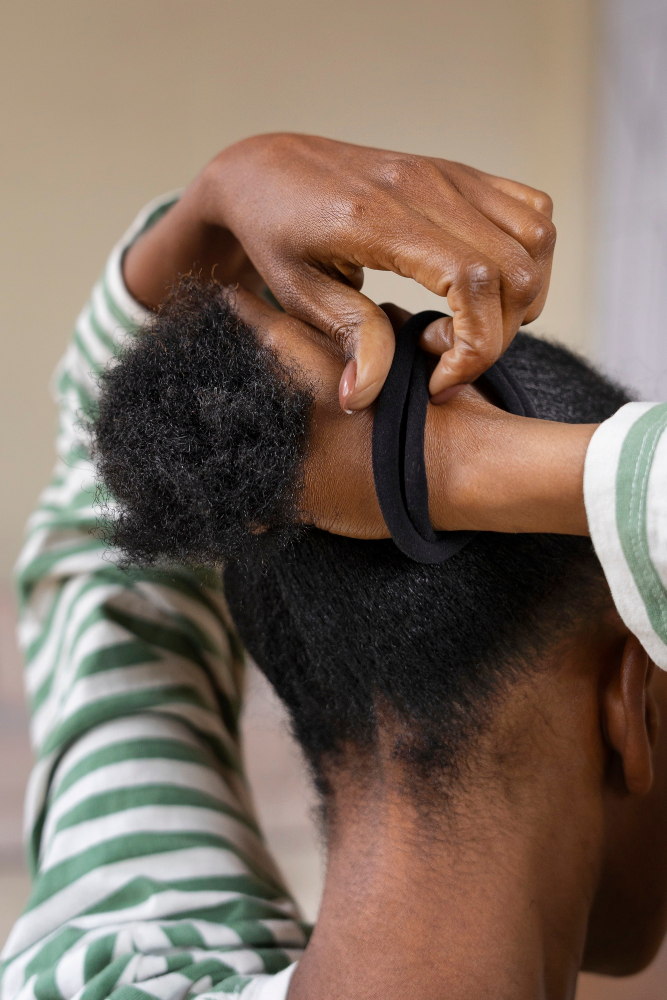🎧 Listen to: Personal Grooming

Personal Grooming
What is personal grooming?
Personal grooming means keeping yourself clean, neat, and well-presented. It includes things like bathing, brushing your teeth, washing your hands, and wearing clean clothes. Good grooming is not just about looking good, it also protects you from diseases and makes you feel confident.
In many African homes, parents emphasize bathing in the morning and evening, wearing clean clothes, and cutting nails regularly. These are not just traditions but important health habits that prevent infections and illnesses.
How common are hygiene-related diseases in Africa?
Poor personal hygiene is linked to many common diseases in Africa, including:
- Diarrhoea: A leading cause of child deaths in Africa, often caused by dirty hands or contaminated food.
- Skin infections: Fungal infections and scabies are common due to poor skin hygiene.
- Tooth decay and gum disease: Many Africans suffer from dental problems due to lack of proper oral hygiene.
- Respiratory infections: Germs spread easily when people don’t wash their hands or cover their mouths when sneezing or coughing.
According to the world health organization (WHO), about 45% of deaths in Africa from diarrhoea and respiratory infections could be prevented by simple hygiene practices like handwashing with soap.
Key aspects of personal hygiene?
Good hygiene practices should be part of everyday life. Here are some important areas to focus on:
Toilet hygiene
- Always wash your hands after using the toilet.
- Use soap and scrub for at least 20 seconds, making sure to clean between fingers and under nails.
- If there’s no water, use a hand sanitizer with at least 60% alcohol.
Bathing and body hygiene
- Bathe at least twice a day, especially if you sweat a lot or live in hot areas.
- Use soap and a sponge to remove dirt, sweat, and bacteria.
- Wash your hair at least twice a week to prevent dandruff and scalp infections.
Nail hygiene
- Keep nails short and clean to avoid the buildup of dirt and germs.
- Avoid biting your nails as this can spread germs to your mouth.
Dental hygiene
- Brush your teeth at least twice a day (morning and night) for two minutes each time.
- Floss daily to remove food stuck between teeth.
- Visit a dentist at least once a year to check for cavities and gum disease.
Hand hygiene
- Wash your hands:
- Before eating or preparing food.
- After handling money, garbage, or animals.
- After coughing, sneezing, or using public transport.
Hygiene when sick
- Cover your mouth with a tissue or elbow when coughing or sneezing.
- Avoid sharing utensils, towels, or other personal items when sick.
- Clean and disinfect commonly used surfaces like door handles, phones, and tables.
Effects of poor personal hygiene?
Neglecting personal hygiene can lead to:
- Bad body odor due to sweat and bacteria buildup.
- Skin infections like rashes, ringworm, or scabies.
- Tooth decay and bad breath due to poor oral hygiene.
- More illnesses such as diarrhoea, flu, and respiratory infections.
- Low self-esteem and social rejection—people may avoid you if you smell bad or have visibly dirty clothes.
How to maintain healthy skin and beauty?
Taking care of your skin and body is not just about beauty; it helps prevent infections and keeps you feeling fresh.
Skin care
- Wash your face at least twice a day with mild soap.
- Apply a moisturizer if your skin is dry.
- Exfoliate weekly to remove dead skin and brighten your complexion.
- Protect your skin from excessive sun exposure by wearing hats or using sunscreen.
Body care
- Exercise regularly to improve blood circulation and maintain healthy skin.
- Get occasional massages to relax muscles and improve skin health.
- Always wear clean clothes to prevent skin infections.
- Eat a balanced diet rich in fruits and vegetables to nourish your skin.
Environmental hygiene
- Keep your surroundings clean to prevent the spread of diseases.
- Regularly clean your kitchen, bathroom, and bedroom.
- Avoid littering and dispose of waste properly.
Conclusion?
Good personal grooming and hygiene are not just about looking good but staying healthy. In Africa, where hygiene-related diseases are common, practicing simple habits like washing hands, bathing daily, and keeping nails short can prevent many illnesses. Taking care of yourself also boosts confidence and makes you more presentable in society.
